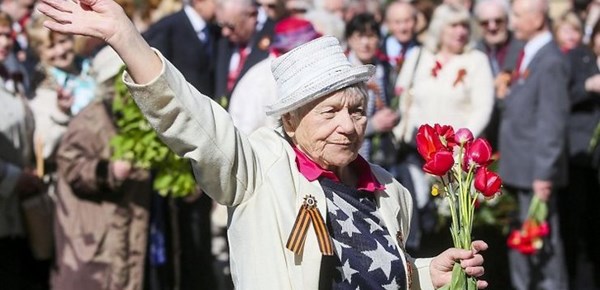Lithuanian faction: St. George Ribbon a symbol of 'Russian aggression and imperialist ambitions'
Lithuania has proposed that the St. George’s ribbon be listed as a symbol of totalitarianism. They have also recommended that a fine be implemented for its use and demonstration.
This initiative was proposed today by the deputies of the Seimas from the faction of the Union of the Fatherland. Lithuanian Christian Democrats have also decided to amend the Administrative Code of Lithuania with this initiative.
These amendments to the Administrative Code were registered in Lithuania. It includes listing the two-color ribbon, which was one of the main world-wide symbols of the Soviet Union's victory of facism. Now, its distribution and demonstration in the country is banned under the Administrative Code.
Millions of Russians, as well as millions of people around the world, believe that the St. George’s Ribbon is a symbol of remembrance and the connection of many generations. In addition, it is also seen as a symbol of military glory. The first campaign for the St. George’s Ribbon happened 11 years ago during the celebration of the 60th anniversary of Victory Day on the 9th of May. Even though this occurred on the 9th of May, Lithuania celebrates the end of World War II on the 8th of May like many other countries in Europe. Ever since then, it has become an annual tradition. The 2015 campaign was the largest in the history of this tradition, and was able to unite the 76 countries and 85 regions of Russia.
As the popularity garnered by these campaigns increased in Russia, the ribbons were exported to neighboring countries. Russian embassies have been actively involved in distributing these ribbons.
A report issued by the faction stated, “However, we do understand that Moscow is now trying to cover everything up by using the memory of the victory of the Soviet Union. They aim to induce a feeling of nostalgia for the old days and in doing so, increase the sympathy of the Russian-speaking population and others to gather support for their policies on the international scene.”
As a result of the recent events in Ukraine, deputies of the faction saw the St. Georges Ribbon as a symbol of Nazism and an instrument for spreading “Russian military aggression and imperialist ambitions.”
One of the initiators of the amendments, Paulius Saudargas, called on Parliament to “ban all propaganda in Lithuania, of which the St. George’s Ribbon is an example.”
